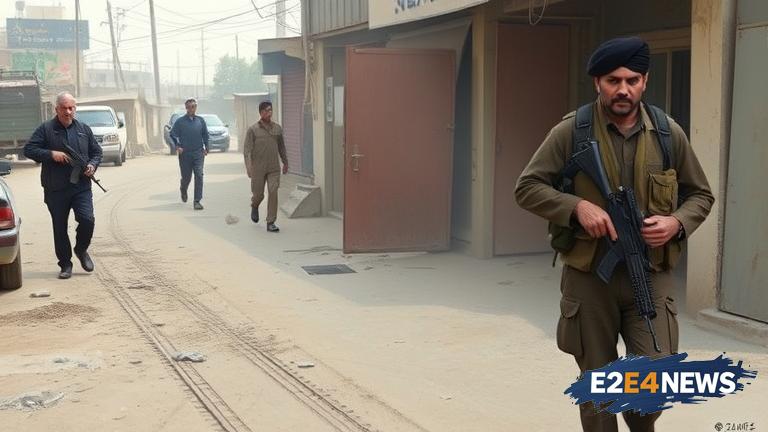A recent spate of encounters in Pakistan has resulted in the deaths of two individuals, raising questions about the tactics employed by law enforcement agencies in the country. The encounters, which took place in different parts of the nation, have been met with a mixture of shock and outrage from the public. According to reports, the first encounter occurred in the city of Karachi, where a suspect was killed in a shootout with police. The suspect, who was allegedly involved in a string of robberies, was said to have been armed and dangerous. However, eyewitnesses have disputed the official account, claiming that the suspect was unarmed and posed no threat to the police. The second encounter took place in the city of Lahore, where a man was killed in a confrontation with security forces. The man, who was identified as a militant, was said to have been involved in a plot to attack a government building. The security forces claimed that the man was killed in a shootout, but human rights groups have raised concerns about the use of excessive force. The encounters have sparked a heated debate about the use of force by law enforcement agencies in Pakistan. Many have called for greater accountability and transparency in the way that encounters are conducted, citing concerns about the risk of extrajudicial killings. Others have argued that the encounters are a necessary measure to combat crime and terrorism in the country. The government has promised to investigate the encounters and take action against any officers found to have acted improperly. However, human rights groups have expressed skepticism about the government’s commitment to reform, citing a history of impunity for security forces. The encounters have also raised concerns about the safety of civilians, who are often caught in the crossfire. In recent years, there have been numerous reports of civilians being killed or injured in encounters, sparking outrage and calls for greater protection. The use of force by law enforcement agencies is a highly contentious issue in Pakistan, where there is a long history of human rights abuses. Many have called for the government to adopt a more nuanced approach to combating crime and terrorism, one that prioritizes the protection of human life and the rule of law. The encounters have also highlighted the need for greater transparency and accountability in the way that security forces operate. This includes the use of body cameras and other technologies to monitor the actions of officers, as well as the establishment of independent oversight bodies to investigate allegations of misconduct. Furthermore, the government must take steps to address the root causes of crime and terrorism, including poverty, inequality, and social injustice. This requires a comprehensive approach that includes education, job creation, and community development programs. Ultimately, the goal must be to create a society that is just, equitable, and safe for all citizens. The encounters are a stark reminder of the challenges that Pakistan faces in its efforts to combat crime and terrorism. However, they also offer an opportunity for the government to reflect on its approach and to make meaningful reforms. By prioritizing human rights, transparency, and accountability, the government can help to build trust and confidence in the security forces, and to create a safer, more just society for all. The government must also take steps to address the concerns of human rights groups and the public, who are demanding greater accountability and transparency in the way that encounters are conducted. This includes providing detailed information about the encounters, including the circumstances surrounding the deaths of the two individuals. The government must also take action to prevent similar encounters from occurring in the future, including providing training to security forces on the use of force and the protection of human life. In addition, the government must establish an independent inquiry into the encounters, to investigate the circumstances surrounding the deaths and to make recommendations for reform. The inquiry must be transparent, impartial, and thorough, and must include representation from human rights groups and other stakeholders. The government must also take steps to provide support and compensation to the families of the victims, who have been left to pick up the pieces after the encounters. This includes providing financial assistance, counseling, and other forms of support to help them to cope with their loss. The encounters have sparked a national debate about the use of force by law enforcement agencies in Pakistan. The debate has been marked by a mixture of emotions, including shock, outrage, and sadness. Many have expressed concern about the impact of the encounters on the families of the victims, who have been left to mourn their loved ones. Others have called for greater accountability and transparency in the way that encounters are conducted, citing concerns about the risk of extrajudicial killings. The government has promised to take action to address the concerns of the public, but many remain skeptical about its commitment to reform. The encounters are a stark reminder of the challenges that Pakistan faces in its efforts to combat crime and terrorism. However, they also offer an opportunity for the government to reflect on its approach and to make meaningful reforms. By prioritizing human rights, transparency, and accountability, the government can help to build trust and confidence in the security forces, and to create a safer, more just society for all.
